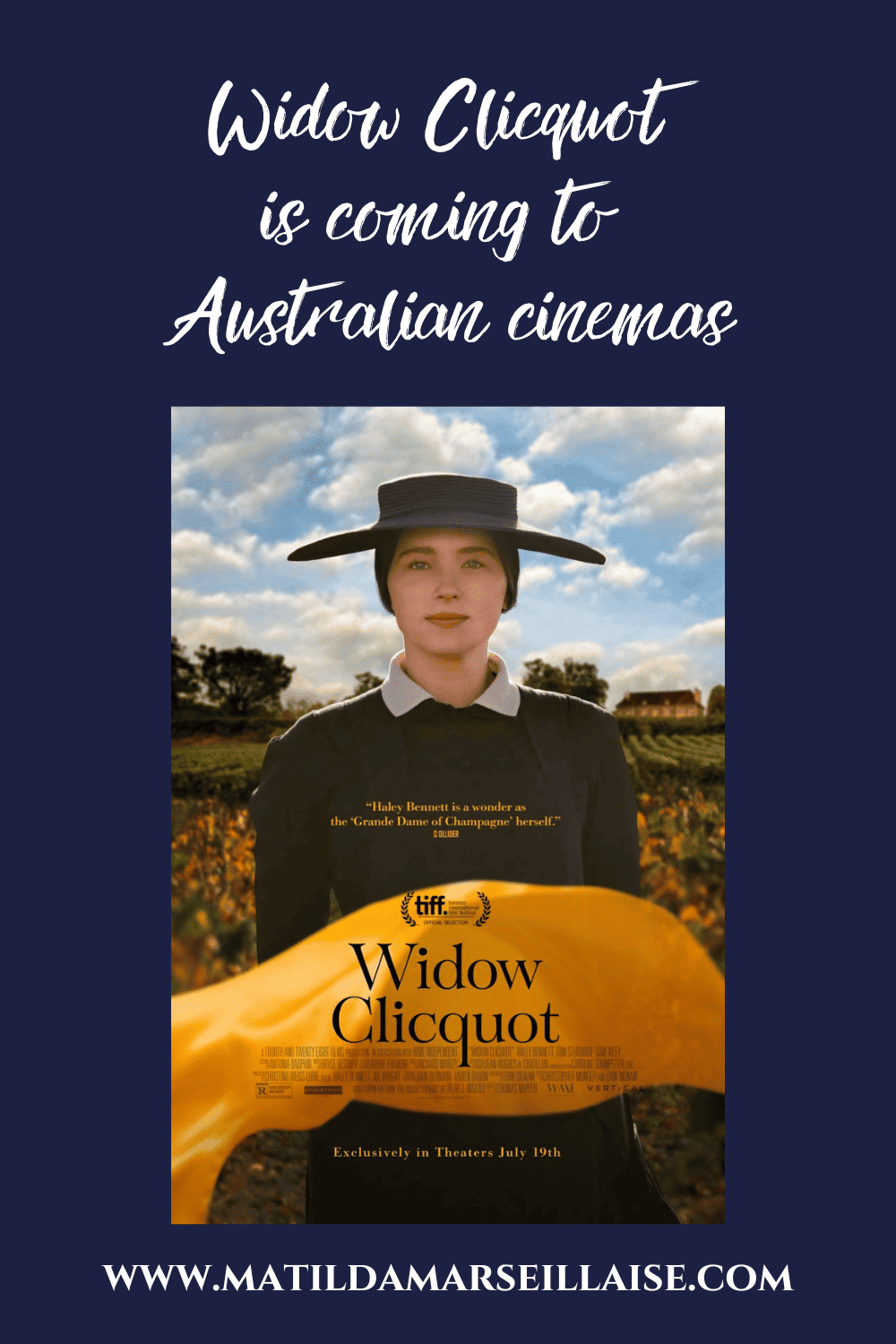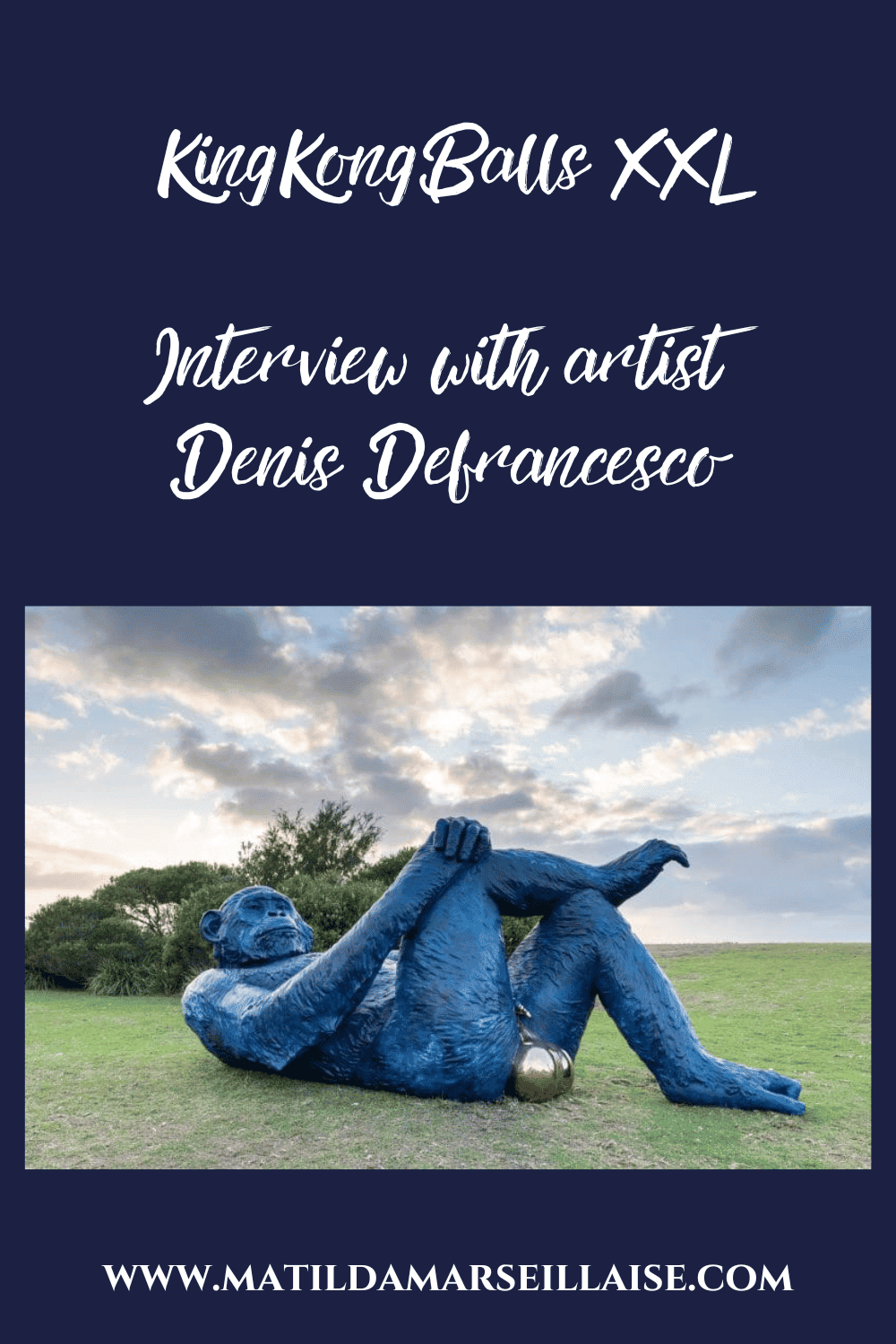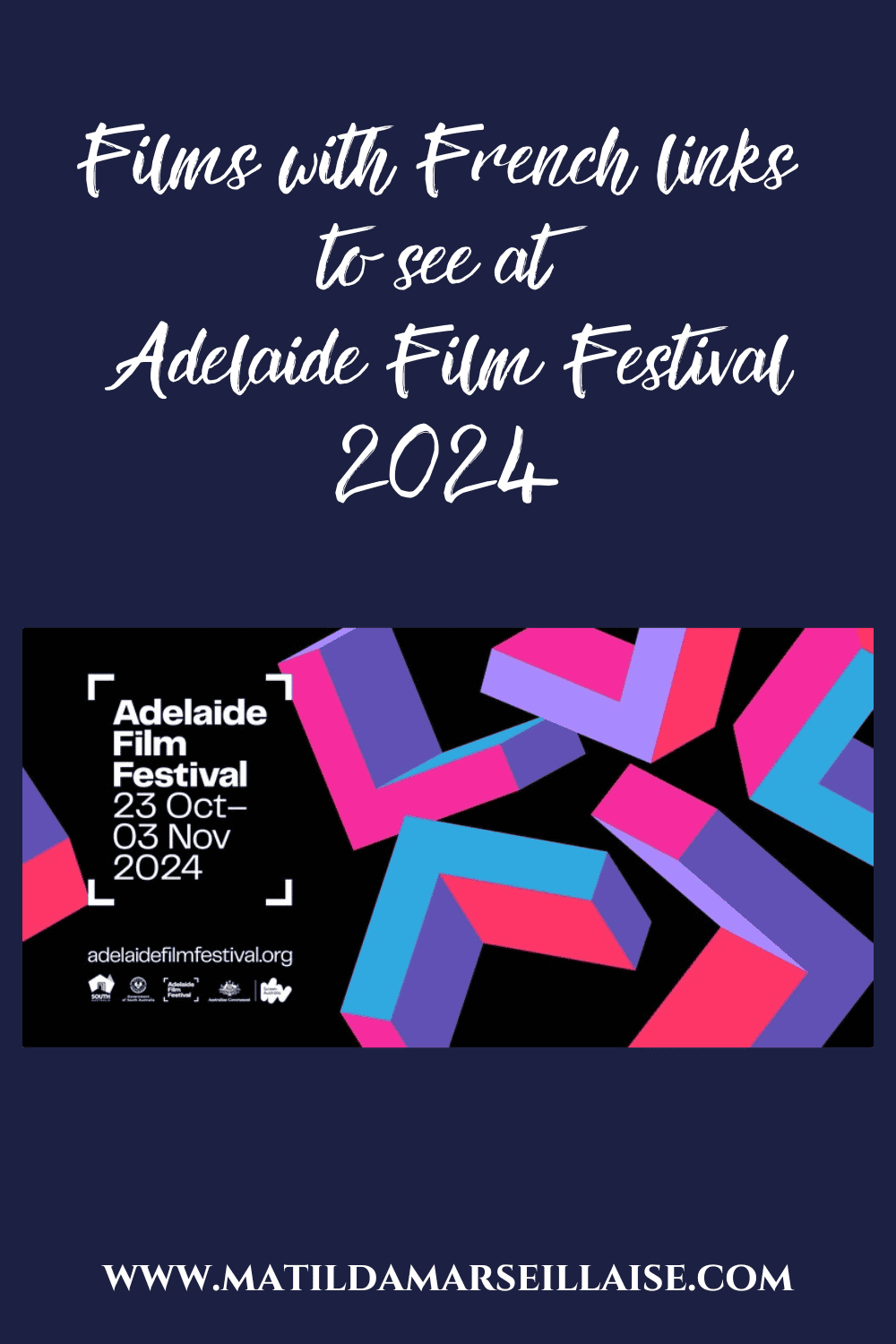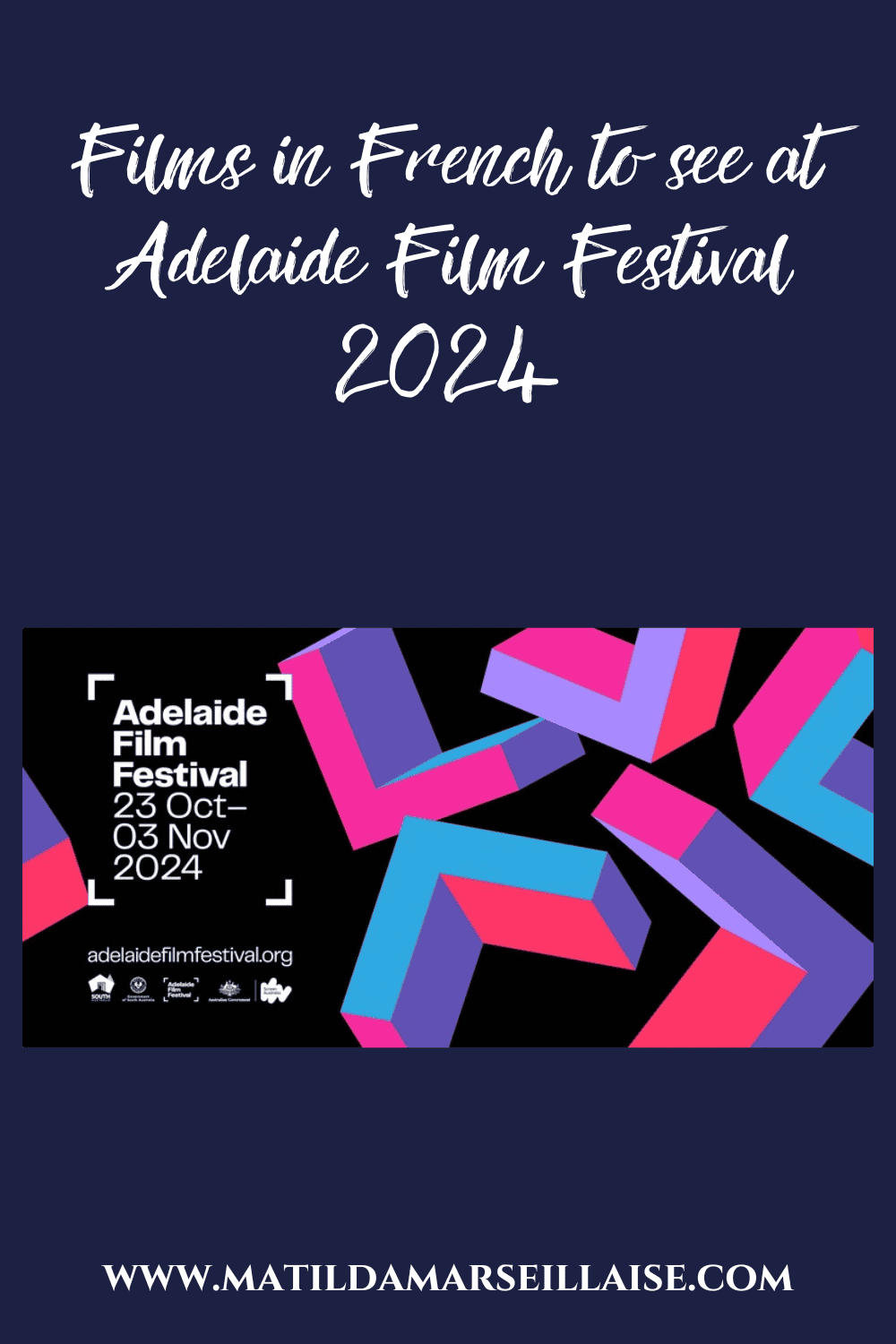Emily Gelineau, a Perth-based, award-winning Violinist, Pianist, Vocalist, Composer and Arranger presenting a tribute to French violinist Stéphane Grappelli at Perth Fringe World named Tea for Two. She is known for interpreting modern styles of music from jazz to country, pop to rock, and world styles. We have a chat to her about her career and the Tea for Two show.

Bonjour Emily Gelineau, you’re bringing your show, “Tea for Two” – A Stéphane Grappelli Tribute & Night of Jazz Violin, a Gypsy Jazz show honouring French violinist Stéphane Grappelli to Perth FringeWorld. Can you tell us a little about the show.
Bonjour, Matilda! I’m very excited to be bringing this new show “Tea for Two” to Perth FringeWorld this year. It’s something I’ve been wanting to do for quite some time now, and bringing it to life will be truly magical. The show will loosely follow his life journey as a violinist, and all the amazing achievements and people he met along the way: from his iconic collaborations with Django Reinhardt to later collaborations with Oscar Peterson, and founding his own band and performing at some of the most prestigious jazz festivals in the world.
Why did you decide to make a show in tribute to Stéphane Grappelli?
Stéphane has been one of my biggest influences since I can remember! I grew up as a classical musician, and it wasn’t until I was a teenager that I decided to embark on this journey of jazz – and famously, violin isn’t really the most welcome instrument in jazz! At least so I thought, until I came across Stéphane Grappelli and the Gypsy Jazz genre. Now, I’m proud to say that I can call myself a jazz violinist and I get to play this music that I love for a living, and I definitely owe that all to Stéphane, who really pioneered and changed the stigma surrounding Violin as a jazz instrument.
What was significant about Stéphane Grappelli’s music?
Stéphane spanned many different genres over his career, but he most certainly revolutionised Gypsy Jazz. His collaborations with Django Reinhardt, and the Hot Club of France, is truly extraordinary and was quite unheard at that time. Now, a really large majority of the population know this music because of these two musicians, and the impact they made in popularising it.
En célébrant Stéphane Grappelli, y a-t-il des aspects spécifiques de son style ou de ses contributions au jazz que vous trouvez particulièrement inspirants ?
D’après ce que j’ai compris, Stéphane avait cette effronterie qui transparaissait à la fois dans sa personnalité et dans son jeu ! On peut l’entendre sourire d’une oreille à l’autre lorsqu’il joue, et son jeu est incroyablement détendu et amusant. Je pense que la plupart des musiciens classiques ont grandi en écoutant des musiciens extraordinaires qui peuvent être assez sérieux par nature – comme le classique l’exige souvent – et le fait de découvrir la légèreté et la bonne humeur du jeu de Stéphane m’a rappelé que la musique est faite pour être savourée, pour le plaisir de l’interprète et de l’auditeur.
Comment vous engagez-vous avec votre public pendant les concerts, et quel genre d’atmosphère souhaitez-vous créer pendant «Tea for Two» ?
J’aime parler, et je pense que la meilleure partie d’un spectacle, quel qu’il soit, et en particulier d’un spectacle musical, c’est d’apprendre à connaître les musiciens sur scène. Oui, bien sûr, la musique est la partie la plus importante, mais chaque spectacle raconte une histoire, et le fait de pouvoir partager des anecdotes personnelles, des blagues drôles ou des souvenirs, permet au public d’être attiré et d’apprécier le spectacle, en dehors de la musique elle-même ! Je pense que c’est ce que j’aime tant dans le Fringe Festival et c’est pourquoi j’ai décidé d’y participer, car il s’agit avant tout d’impliquer le public, et j’espère que lorsqu’il quittera le spectacle, il aura appris une ou deux choses de plus sur la musique, sur Stéphane ou sur moi, qu’il pourra emporter avec lui !
Having been a musician for 20 years and focusing on jazz for the last decade, how has your musical journey evolved, and what led you to explore various jazz styles, including Gypsy Jazz, Brazilian Jazz, and Fusion?
Oh gosh – what a question! It’s been a road, that’s for sure. I’ll keep it short – I started playing violin at the age of 3, starting busking around Perth at 5, and really lived and breathed music! As a teenager, I realised that I loved performing, and the violin, but I didn’t want to pursue a typically “Classical” career, or to be in an orchestra. So, I auditioned and was accepted to the Berklee College of Music in the USA on a full scholarship at 16, and studied there for 4 years until COVID.
And this changed everything! I learnt everything from Nashville country music to jazz, from middle eastern to flamenco, and met so many people from all sorts of countries and cultures which broadened my horizons. I would say that I was always captivated by “Fusion Jazz”, I loved its funkiness, and so I put a lot of time and effort into performing that style of music whilst in the USA. However, I would say that I have lent much more into Latin styles now too, which I first learned and picked up in the USA whilst hanging out with friends from South and Central America, and I play quite a lot of Brazilian music, and I love it! I think that I love discovering something different, and not just sticking to one thing. I like to have the whole buffet in front of me!
What can the audience expect from your show Tea for Two in terms of musical elements and the celebration of the violin in jazz?
I’d say that this show aims to re-imagine the way you think about the violin. You’ll hear ballads, fast jazz tunes, improvisation, and so much more. The violin is incredibly versatile, and all I aim to do is bring more appreciation to this instrument and this genre, and hopefully inspire any other young violinists to do the same!
The blurb mentions “fast fancy finger work that’ll see steam come off the strings.” Can you elaborate on the technical aspects and challenges of incorporating such intricate elements into your performance?
I’ll have to work on that “steam” part! I’d say that the main aspect of these performances is always improvisation, as that is where the genre of Jazz really shines, and it’s probably my favourite part too. I’ve always loved improvising, as you can make anything up on the spot, and know that it will also be different anytime, which makes a performance very special to the audience viewing it. But improvisation is a very tricky thing to do! And I’m constantly practicing and learning. So, I won’t let too much out of the bag before the show, but you can definitely expect all musicians on stage to be letting their abilities loose and engaging in some real fun improvisation!
How do you approach arranging and interpreting modern styles of music, spanning jazz to country, pop to rock, and world styles in your performances?
It can be challenging, but it’s all by trying and just giving it a go. There is no right or wrong, especially when mixing and playing so many different styles of music, and sometimes the mistakes lead to amazing musical discoveries! I’d say it’s just with time and trial, figuring out what works, what you liked, what you didn’t, and doing it all over again!
As a multi-instrumentalist (Violinist, Pianist, Vocalist), how do you navigate the dynamics of incorporating multiple instruments into your shows, and does each instrument hold a special place in your musical expression?
You know what, for a very long time, I was scared to add these other instruments into my performance. I think I had spent so much time working on my skills as a violinist, that I felt I wasn’t good enough to performing on my other instruments. But the last few years I’ve started to incorporate these elements much more into the shows, and I’ve seen such a change in myself, and the audience that love the variety and the change in the shows that I present!
I do think that each instrument has a purpose, and sometimes a song calls for keyboard rather than violin, or added vocals. I’ve been lucky enough to use these skills particularly in Jessie Gordon’s Approximate Folk, where I play both piano and violin and sing backing vocals, along with many other bands of which I do the same, and it fills me with a lot of gratitude and makes the performances even more fun.
Graduating from the Berklee College of Music in Boston is a significant achievement. How has your time at Berklee influenced your approach to music, particularly jazz, and how has it shaped your career as a musician?
Oh, it was probably the most important time of my life to this date! I left Australia at 17, moved to a country I didn’t know, where I knew no one, and lived there until I was 21. I’ll admit, I was young and naïve, but I had such a passion for music and excitement for life, that I just said “yes” to anything and everything that came up. It made for little to no sleep, but the amount that I learnt was outstanding.
It was unbelievable to see other Jazz Violinists like myself, being appreciated much more in the USA than in Australia, and the sheer wealth of incredible musicians inspired me daily. I met some of the best people, and played some incredible concerts. It really taught me that anything can be possible, just with a bit of hard work!
How does your international experience, particularly residing in the USA for four years, contribute to your perspective on jazz and your musical identity?
I think that living anywhere outside of your country of origin for an extended amount of time has a massive impact on shaping your identity, both personally and within your work. Since I was still only a teenager whilst I moved to the USA, I basically grew up into an adult whilst being there, and all the personal challenges along the way I found matured my musicality beyond belief. Music is an extension of yourself – you are only creating and playing from what is inside of you. So, when you change and develop, so does the music that you play.
Specifically about the USA though, the opportunities that I received whilst being there contributed more than I can imagine to my perspective on being a musician. I was able to perform in places I’d never dreamed of, won a Grammy award by being a musician on a recording that won in 2021, and got to live in the beautiful cities of Boston and New York City. I’ve never felt so inspired, it is an incredible place!
You have a French surname, with your father being French Canadian. Has this influenced your work and if so, how?
I do! And it’s a challenge for people to pronounce it right, that’s for sure! I do believe it has; I took French lessons for almost 10 years whilst growing up, and have always loved languages. I still believe French to be one of my favourite languages, and the music is just so rich and diverse from France, and it still is one of the best destinations for a variety of different genres and music today. Even though my French is quite shocking now, (I opted to speak Spanish and Portuguese instead in my adult years), I still love connecting with the language when I can, and exploring more of the French music.
Why should people come to see this show at Perth FringeWorld?
If you like jazz, or the violin, (or even if you don’t, yet!), and you’re looking for an early evening show that you can tap your toes along to, I think it is the perfect answer to what you are looking for. The shows are quite early, held at Ellington Jazz Club over two nights, which is just the perfect setting for the show. You’ll be blown away by the musicians and musicality on stage, and you might even know a song or two!
KEY INFO FOR TEA FOR TWO: A STÉPHANE GRAPPELLI TRIBUTE AND NIGHT OF JAZZ VIOLIN
WHAT: “Tea for Two” – A Stéphane Grappelli Tribute & Night of Jazz Violin
WHERE: The Ellington Jazz Club
WHEN: 5 & 6 February 2024
HOW: Purchase your ticket via this link
HOW MUCH: Ticket prices depend on whether you choose seated or standing places and have any discount such as Concession or Friends Frenzy.

Are you familiar with Stéphane Grappelli’s music?
For other artists and shows with links to France and the Francophonie at Perth Fringe World 2024, click here.
For events with links to France and the Francophonie happening in Australia this month, check out our What’s on in January.






